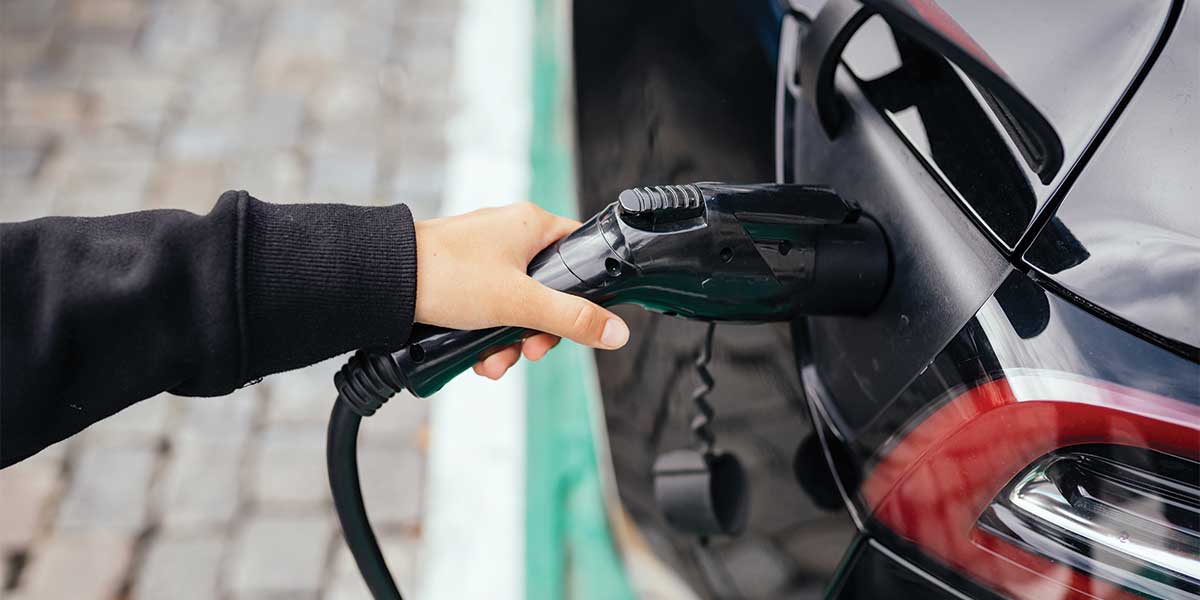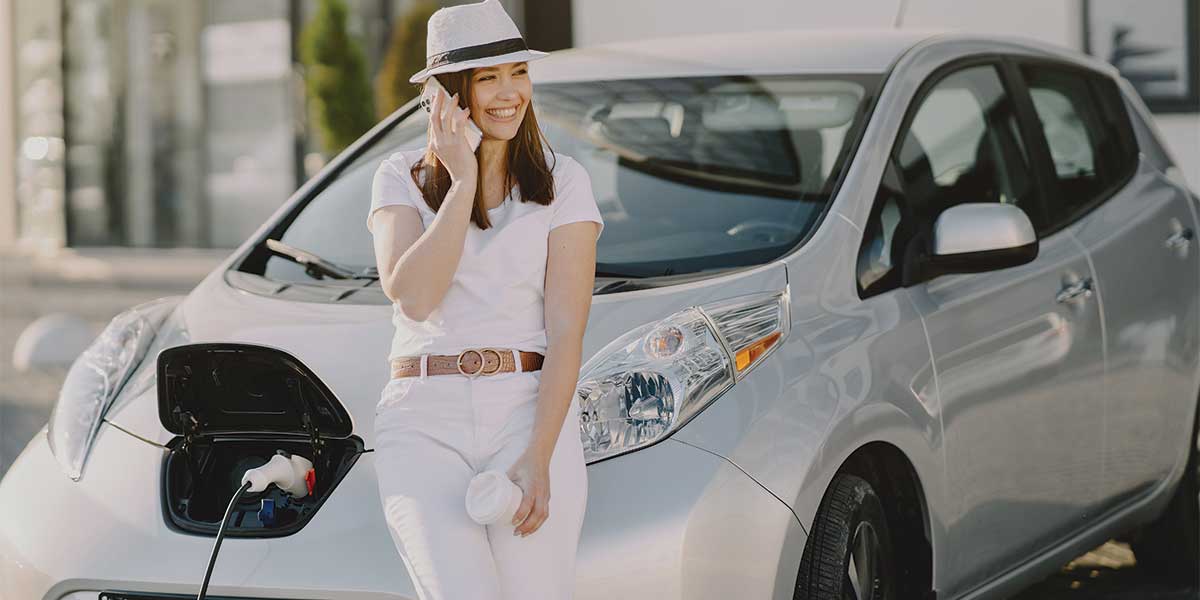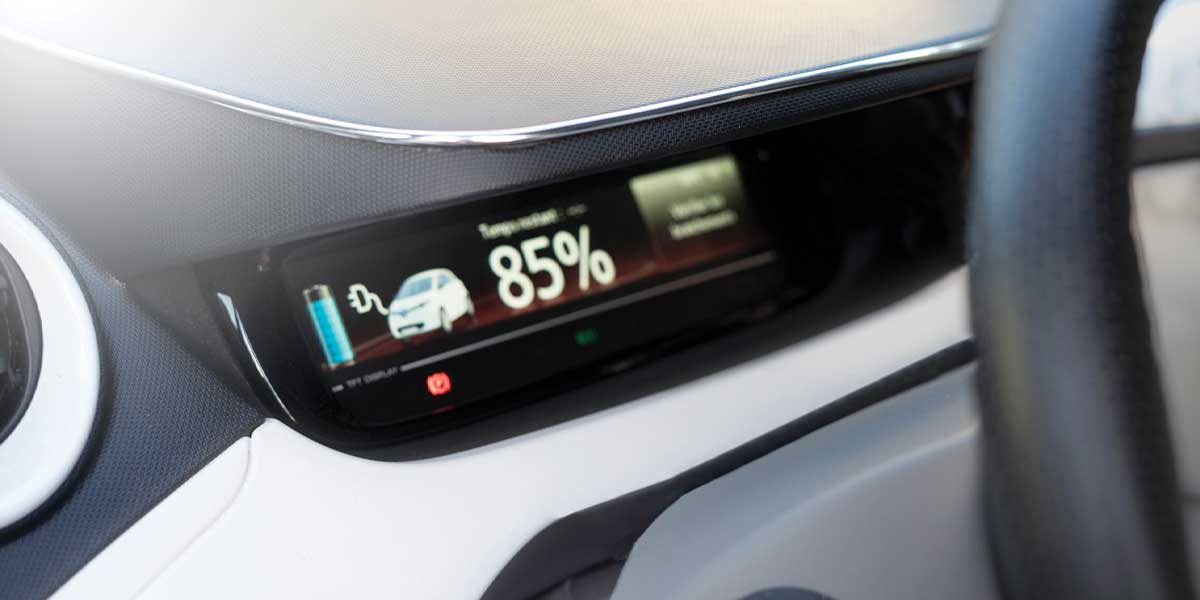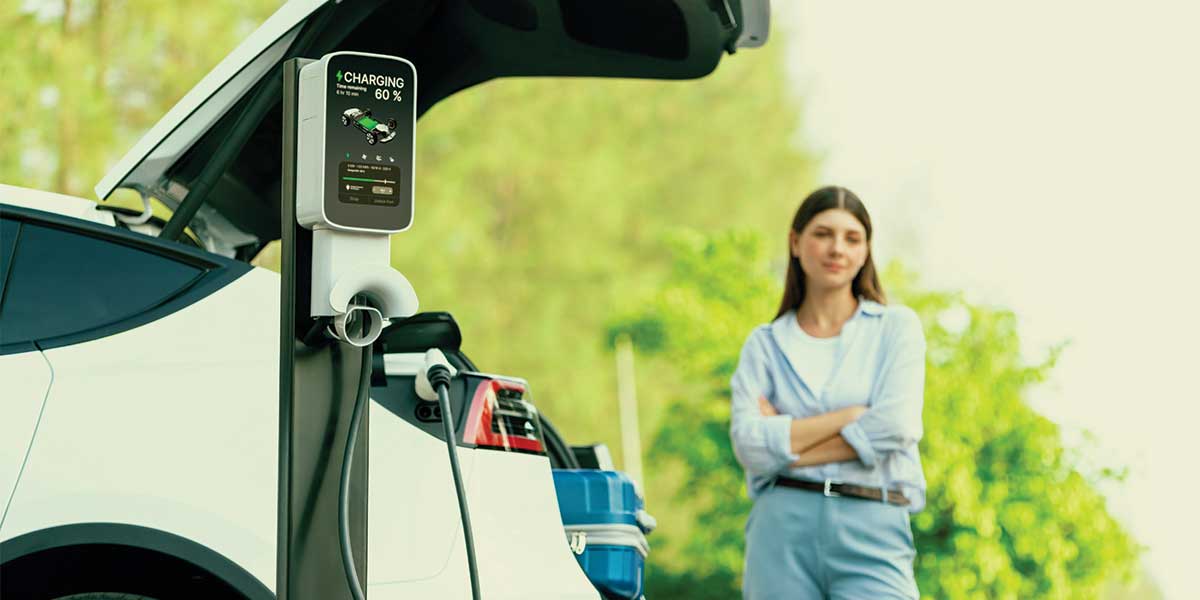The Evolution of Electric Vehicles is redefining the global automotive landscape, challenging traditional combustion engines, and spearheading a transition toward sustainability. From early experiments in the 19th century to today’s sophisticated, connected EVs, the journey of electric vehicles highlights human ingenuity and innovation.
As the adoption of EVs accelerates worldwide, the industry is at a pivotal moment, prompting the critical question: Where are we heading? This article explores the evolution of electric vehicles, their current state, and the future trends that continue to shape this transformative industry.

The Historical Roots of Electric Vehicles
Early Beginnings
The concept of electric-powered vehicles has been introduced previously. In the early 1800s, inventors like Thomas Davenport and Robert Anderson experimented with electric carriages powered by non-rechargeable batteries. By the late 19th century, rechargeable battery technology introduced practical electric cars.
The Rise and Fall of Early EVs
By 1900, electric vehicles accounted for about a third of all automobiles in the United States. Quiet, clean, and easy to operate, EVs appealed to urban drivers over noisy, polluting gasoline engines. However, the advent of mass production techniques for gasoline cars, led by Henry Ford’s Model T and cheap oil, relegated EVs to niche status for nearly a century.
The EV Renaissance: 21st Century and Beyond
The Catalyst for Change
The early 2000s marked a turning point as environmental concerns and advancements in battery technology rekindled interest in EVs. Companies like Tesla revolutionized the market with high-performance electric cars that appealed to mainstream consumers.
Global Adoption
Governments worldwide began incentivizing EV adoption through tax credits, subsidies, and stringent emissions regulations. By the 2010s, significant automakers like Nissan, GM, and BMW launched their electric models, marking a pivotal moment for EVs.
The Current State of Electric Vehicles
Technological Advancements
- Battery Technology: Lithium-ion batteries dominate the EV market, offering increased energy density, faster charging, and longer lifespans. Cutting-edge developments in solid-state batteries promise even greater efficiency and safety.
- Charging Infrastructure: The growth of fast-charging networks like Tesla Superchargers and Electrify America has significantly improved the convenience of EV ownership.
- Range Anxiety: Advances in range technology, with many EVs now exceeding 300 miles on a single charge, ease consumer concerns about long-distance travel.
Market Growth
- Diverse Offerings: From compact sedans to electric SUVs and trucks, the EV market now offers something for every consumer.
- Cost Parity: As battery prices decline, EVs are expected to reach cost parity with internal combustion engine vehicles within the next decade.
Renewable Energy Integration
The synergy between EVs and renewable energy sources like solar power is becoming more apparent. Solar-integrated EV chargers allow owners to charge their vehicles sustainably, reducing reliance on fossil fuels.

Challenges on the Road Ahead
Infrastructure Limitations
While charging networks expand, gaps remain in rural areas and developing nations. Investment in charging infrastructure is critical to widespread EV adoption.
Battery Supply Chain
The demand for materials like lithium, cobalt, and nickel poses sustainability and ethical challenges. Innovations in recycling and alternative materials are vital to addressing these issues.
Energy Grid Impacts
The electrification of transportation increases the strain on power grids. Innovative grid solutions and renewable energy integration will be crucial in managing demand.
Future Trends in the EV Industry
Autonomous Electric Vehicles
The convergence of EVs and autonomous driving technology is set to revolutionize personal and commercial transportation. Companies like Waymo and Tesla are pioneering self-driving electric cars, which could reshape urban mobility and reduce road accidents.
Vehicle-to-Grid (V2G) Technology
EVs with bidirectional charging capabilities can act as mobile energy storage units, returning power to the grid during peak demand. This innovation benefits consumers and utility companies, fostering a more resilient energy ecosystem.
Solid-State Batteries
Solid-state batteries are poised to be the next giant leap in EV technology. With higher energy density, faster charging, and improved safety, these batteries could reduce costs and enhance EV performance.
Electrification of Commercial Fleets
The commercial sector rapidly adopts electric solutions for delivery vans, buses, and heavy-duty trucks. Companies like Amazon and UPS lead the way by transitioning their fleets to electric, reducing emissions and operational costs.

The Role of Solar Energy in the Evolution of Electric Vehicles
Solar-Powered Charging Stations
Integrating solar panels with charging infrastructure represents a sustainable solution to energy demands. Solar-powered EV chargers reduce reliance on traditional power grids, providing clean energy for transportation.
Home Charging Solutions
Homeowners increasingly pair rooftop solar systems with EV chargers to create an eco-friendly, cost-effective charging setup. Innovations in energy storage further enhance the appeal of this combination.
A Circular Energy Economy
The rise of solar energy and EVs paves the way for a circular energy economy. By generating, storing, and utilizing renewable energy, households can achieve near-complete energy independence.
The Broader Impact of EVs
Environmental Benefits
- Reduced Emissions: EVs produce zero tailpipe emissions, significantly reducing greenhouse gas contributions.
- Air Quality Improvement: Transitioning to electric transportation can alleviate urban air pollution, benefiting public health.
Economic Opportunities
- Job Creation: The EV revolution creates jobs in manufacturing, research, and renewable energy sectors.
- Energy Independence: Reduced reliance on oil imports strengthens national energy security.
Where Are We Heading?
The future of electric vehicles is bright, with innovation and collaboration driving progress. By 2030, EVs could dominate global car sales, transforming transportation and energy systems. Key developments to watch include:
- Policy Support: Governments are setting ambitious goals for phasing out gasoline vehicles accelerating the transition to electric mobility.
- Consumer Acceptance: As costs drop and infrastructure expands, EVs will become the default choice for many.
- Sustainability: The push for sustainable battery production and renewable energy integration will ensure the long-term viability of the EV industry.
Embrace the Future with Expert Electric
At Expert Electric, we understand the transformative power of electric vehicles and renewable energy. Whether you’re looking to install a solar-powered EV charger, upgrade your home energy system, or explore the benefits of energy-efficient solutions, we’re here to help.
Contact us today to learn how we can support your journey toward a sustainable, electric future. Together, we can drive the evolution of clean energy and transportation.
By embracing electric vehicles (EVs), we are embarking on a transformative journey beyond reimagining how we move—it’s about shaping a sustainable future for ourselves and future generations. EVs represent more than a technological shift; they symbolize a commitment to reducing our environmental impact, improving air quality, and conserving vital natural resources.
Every EV on the road contributes to reducing greenhouse gas emissions, helping combat climate change and paving the way for cleaner, healthier cities. Paired with renewable energy sources like solar power, EVs create a harmonious system that reduces dependency on fossil fuels and minimizes our carbon footprint. This is not just a change in transportation—it’s a comprehensive step toward energy independence and a more resilient energy ecosystem.
The EV revolution is about innovation and empowerment, offering consumers cleaner, quieter, and more efficient vehicles without compromising performance or convenience. It’s about turning challenges into opportunities and creating a legacy of responsible choices.
The shift to electric vehicles is inevitable and exciting. As we collectively accelerate toward a sustainable future, the question remains: Are you ready to be part of this revolution? Join us and drive into a brighter, cleaner tomorrow.


